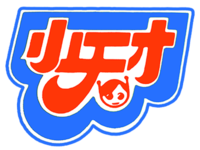Micro Genius
 | |
| Company type | Private |
|---|---|
| Industry | Video game industry |
| Founded | Late 1980s |
| Defunct | 1994 |
| Fate | Unknown |
| Headquarters | , |
| Products | Famiclones (late 1980s–mid 1990s) Video games (1991–1994) |
Micro Genius (Chinese: 小天才; pinyin: xiǎo tiān cái; lit. 'small genius') is a brand name used for Famicom clone consoles marketed in several countries around the world, particularly areas where Nintendo did not have an official presence, including the Middle East, Southeast Asia, South America, Eastern Europe, South Africa and East Asian countries excluding Japan. The name was initially and most famously used by TXC Corporation for its range of Taiwanese-made Famicom clones, software and accessories, but later passed to other companies and remains in use today on rebranded Chinese Famicom clones and LCD games.
In some countries - such as Malaysia - during the early 1990s, Micro Genius Famicom clones were the most popular game consoles,[1] mirroring the popularity enjoyed several years earlier by Nintendo's official Famicom and NES in Japan and North America. In Russia certain models of Micro Genius were sold under the Dendy brand, and in Poland one version, the IQ-502, was released as a Pegasus console - both of which were also the most popular consoles in their respective countries - while in Colombia and certain other Latin American countries they were sold as Nichi-Man. Micro Genius consoles were also sighted being played by children in a North Korean children's camp in 2008,[2] a country which few other video games have reached. However, they rarely reached markets where Nintendo operated, as they often infringed on Nintendo's patents in those regions.[3]
Consoles and accessories


There are several models of the Micro Genius, but the Micro Genius IQ-501 was particularly popular until the official introduction of competitors like Sega and Nintendo in the regions where it was sold. The games came in form of 60-pin cartridges, identical to those of the Japanese Famicom, which were inserted from the top into a cartridge port. A standard Micro Genius console package came with two wired controllers and sometimes a light gun. Some models also used an RF antenna to transmit signals wirelessly to a receiver inserted in the TV. Later incarnations came with IR wireless controllers.
Micro Genius consoles include:
- IQ-201 - an early model resembling the Famicom, with hard-wired controllers
- IQ-301 - similar to the IQ-201, with the addition of turbo switches
- IQ-501 - introduces detachable controllers, sold as Dendy Classic in Russia
- IQ-502 - sold as Dendy Classic II in Russia and Pegasus IQ-502 in Poland
- IQ-701 - resembles the international Nintendo Entertainment System
- IQ-901 - an early handheld TV game
- IQ-1000 - built-in infra-red receiver, comes with one wireless controller and one wired
- IQ-2000 - similar to the IQ-1000 but comes with two wireless controllers
Accessories for other consoles were also sold under the Micro Genius brand, including lightguns and controllers for the original NES, and wireless controllers for the Mega Drive and SNES.
Games
Most versions of Micro Genius are compatible with Famicom cartridges but require a 72-pin to 60-pin adapter to play NES games, although certain models were produced in both 60-pin Famicom and 72-pin NES versions. It was often sold with cartridges containing multiple games.
A series of original Micro Genius games, such as Chinese Chess and Thunder Warrior, was produced in both Famicom and NES format, but unlicensed copies of Japanese games remained more popular in the countries where the console was sold.
List of games
On the list, all Idea-Tek games were later re-released by the same TXC/Micro Genius.[4][5]
| No. | Title | Original release |
Notes |
|---|---|---|---|
| 1 | F-15 City War | 1990 | Released by Idea-Tek. |
| 2 | Puzzle | 1990 | Released by Idea-Tek. |
| 3 | Chinese Chess | 1991 | 1) Also known as Zhōngguó Xiàngqí. 2) In some versions the game is misspelled, credited as "Chinese Chese". |
| 4 | Creatom | 1991 | |
| 5 | Enjoyable Horse Racing [6] | 1991 | 1) Also known as 1991 Du Ma Racing (1991 Dǔ Mǎ Dàsài). 2) Released by Idea-Tek. |
| 6 | Mahjong Block | 1991 | 1) Released by Idea-Tek; a Mahjong theme version of Poke Block. 2) The game was also released (with the addition of nudity) and published by Hacker International as AV Dragon Mahjang. |
| 7 | Poke Block | 1991 | 1) Released by Idea-Tek. 2) In 1992, was re-released by TXC and published by American Video Entertainment as Stakk'M. |
| 8 | Rad Racket: Deluxe Tennis II | 1991 | Released by Idea-Tek. |
| 9 | Venice Beach Volleyball | 1991 | Released by Idea-Tek. |
| 10 | Xiǎo Mǎ Lì | 1991 | 1) Released by Nei-Hu Electronics and distributed by Idea-Tek. 2) Re-released by TXC as Bingo. |
| 11 | Policeman | 1992[7] | |
| 12 | Strike Wolf | 1992 | |
| 13 | Thunder Warrior | 1992 | 1) Also known as Hōng Tiān Zhìzūn. 2) An adapted version was released by Gluk Video as Gluk: The Thunder Warrior. |
| 14 | 3-in-1 Super Gun | 1993 | 3 games in 1: Clowr, Snake Charmer, and Shooter. |
| 15 | Journey to the West | 1994 | Also known as Buddhist Sutras (Xītiān Qǔjīng). |
See also
References
- ^ Ariff, Syed Umar (15 April 2009). "The un-consoled". Johor Streets. NST Online. Retrieved 19 August 2010.
- ^ Sheffield, Brandon (25 September 2008). "More North Korean games - Micro Genius". Insert Credit. Retrieved 20 September 2012.
- ^ Radakrishnan, G (1991). "Nintendo takes action against infringers". IP Asia. 4. Shomei Ltd.
- ^ Idea-Tek and TXC Corp.
- ^ Gluk: Los Juegos del Naranjito
- ^ Enjoyable Horse Racing << Famicom World
- ^ Policeman
